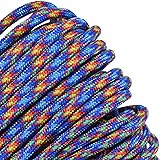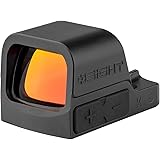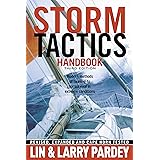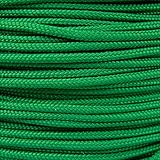The human mind is remarkably resilient, yet undeniably vulnerable, especially when confronted with the unprecedented stressors of a survival situation. As the video above eloquently highlights, the absence of modern comforts and predictable routines can quickly escalate into pervasive anxiety, affecting not only individual well-being but also the collective efficiency of a group. This psychological burden, if left unaddressed, compromises decision-making, impairs physical performance, and can ultimately jeopardize the success of any preparedness efforts. Fortunately, understanding the multifaceted nature of anxiety and proactively implementing strategic interventions can significantly bolster mental resilience in times of crisis.
The reality of a world without immediate medical access or the familiar rhythms of daily life can induce profound unease. When faced with sustained uncertainty, the mind can become a battleground, making it imperative for anyone involved in preparedness to grasp the fundamentals of managing survival medicine anxiety. Let us delve deeper into recognizing its varied manifestations and explore practical, holistic approaches to mitigate its impact, ensuring you and your group remain mentally sharp and operationally effective.
Understanding Survival Medicine Anxiety: Symptoms and Impact
Anxiety in survival scenarios is far more common than many might expect; indeed, it is a rare individual who remains completely unphased when stripped of societal benefits. This condition manifests as a complex interplay of emotional and physical symptoms, creating a challenging landscape for both the individual experiencing it and those responsible for their care. The video insightfully categorizes these manifestations, emphasizing their diverse presentation.
Emotional Manifestations of Anxiety
Emotional symptoms are often the most recognized indicators of anxiety. These can range from subtle shifts in demeanor to overt expressions of distress. Imagine if you suddenly found yourself plagued by irrational fears—perhaps a persistent worry that your shelter’s ceiling might collapse, even if structurally sound. Such anxieties divert critical mental energy, hindering the focus required for survival tasks.
Other common emotional indicators include:
- **Difficulty Concentrating:** A scattered mind struggles to process information or complete complex tasks, which is critical for problem-solving in a crisis.
- **Jumpiness or Hypervigilance:** An exaggerated startle response or constant scanning for threats, which exhausts the nervous system and leads to fatigue.
- **Extreme Pessimism:** A negative outlook that can undermine morale and hinder proactive problem-solving.
- **Irritability:** Short temper and impatience, which can strain group dynamics and communication.
- **Mental Paralysis:** An inability to initiate action or make decisions, causing critical delays.
- **Restlessness:** The opposite of paralysis, characterized by an inability to stand still or relax, indicative of internal agitation.
These symptoms, when pervasive, erode an individual’s capacity to contribute effectively, potentially turning them into a liability rather than an asset within a survival group.
Physical Symptoms of Stress and Anxiety
The mind-body connection ensures that emotional distress often translates into tangible physical symptoms. These can be particularly alarming, sometimes mimicking serious medical conditions. Individuals might experience a racing heart or shortness of breath, believing they are suffering a cardiac event, when in reality, it is a manifestation of acute anxiety.
Typical physical symptoms include:
- **Shortness of Breath:** Often accompanied by rapid, shallow breathing (hyperventilation), which can exacerbate feelings of panic.
- **Palpitations:** A sensation of a pounding or racing heart, causing worry and further anxiety.
- **Perspiration:** Excessive sweating, even in cool conditions, a classic sign of the body’s ‘fight or flight’ response.
- **Upset Stomach & Diarrhea:** Gastrointestinal distress reflecting the body’s stress response.
- **Tremor, Tics, Twitches:** Involuntary muscle movements indicating nervous system overactivity.
- **Tense Muscles:** Chronic muscle tension leading to discomfort and fatigue.
- **Headache:** Stress-induced headaches, often tension headaches.
- **Sleep Deprivation or Insomnia:** The inability to fall or stay asleep, which compounds stress and impairs cognitive function.
Recognizing these physical signs as potential indicators of anxiety, rather than purely physical ailments, is a critical step in providing appropriate care and managing survival medicine anxiety effectively.
Acute Anxiety Attacks: Navigating Panic in a Crisis
The video aptly describes acute anxiety attacks, commonly known as panic attacks, as intense episodes of fear and impending doom. These attacks can strike without warning and, though usually short-lived, are severe. Individuals may experience chest pain, leading them to believe they are having a heart attack. Often, these patients are young adults who appear to be hyperventilating or complain of feeling faint.
Classic complaints during a panic attack extend beyond chest pain and include:
- **Choking Sensations:** A feeling of being unable to breathe, further intensifying fear.
- **Derealization or Depersonalization:** Feeling that the environment is unreal or that they are detached from themselves, creating a disorienting experience.
- **Claustrophobia:** Sensations of walls closing in, particularly distressing in confined spaces.
- **Nausea or Queasiness:** A “pit of the stomach” feeling that can be highly unsettling.
- **Hot Flashes:** Sudden sensations of heat and flushing, another physiological stress response.
While a single panic attack might resolve without medication, recurrent episodes necessitate a more comprehensive approach. Therefore, preparing for such eventualities is a core component of effective survival medicine.
Holistic Approaches to Managing Survival Medicine Anxiety
In a post-collapse scenario, conventional anti-anxiety medications like Xanax will likely be scarce or nonexistent, especially if there was no prior history of anxiety problems to warrant stockpiling. Consequently, focusing on alternative remedies and sound counseling techniques becomes paramount for effective survival medicine anxiety management.
Harnessing Nature’s Pharmacy: Herbal and Essential Oil Remedies
The natural world offers a vast array of calming agents. Cultivating a medicinal herb garden or knowing where to forage for specific plants can provide invaluable resources. These natural remedies offer a milder, yet effective, sedative effect that can help to soothe agitated nerves.
Calming Herbs for Internal Use
Herbs renowned for their anxiolytic properties include:
- **Valerian Root:** Often used for insomnia and anxiety, it acts as a mild sedative.
- **Kava:** Known for its calming and muscle-relaxing effects, though caution is advised with prolonged use or liver issues.
- **Lavender:** Frequently used for relaxation, it can be taken as a tea.
- **Chamomile:** A gentle herb widely recognized for its calming effect and ability to promote sleep.
- **Passion Flower:** Traditionally used to treat anxiety, insomnia, and nervous restlessness.
These herbs can be prepared as teas, tinctures, or infusions. For instance, a warm tea with honey, consumed one cup three times a day as needed, can provide a steady calming influence. Consider cultivating these plants in your preparedness garden to ensure a ready supply.
Aromatherapy with Essential Oils
Essential oils, extracted from plants, offer a powerful avenue for relaxation through inhalation and topical application. The volatile compounds in these oils interact with the olfactory system, influencing mood and physiological responses.
Beneficial essential oils for anxiety include:
- **Bergamot:** Known for its uplifting yet calming properties.
- **Cypress:** Often used to reduce feelings of grief and stress.
- **Geranium:** Helps balance emotions and reduce feelings of stress.
- **Jasmine:** Known for its soothing and mood-lifting effects.
- **Lavender:** Highly versatile, promotes relaxation and sleep.
- **Rose:** Offers comforting and stress-reducing properties.
- **Sandalwood:** Creates a sense of calm and mental clarity.
For direct inhalation therapy, one can simply rub a few drops of oil between the hands, cup them over the nose, and breathe deeply and slowly. For topical use, a 50/50 mixture of any of these essential oils with a carrier oil—such as olive or coconut oil—is recommended. This blend can be gently massaged onto temples, the neck, and shoulders twice daily, allowing for absorption and a sustained calming effect.
The Power of Compassionate Counseling and Communication
Perhaps the most critical, yet often overlooked, aspect of managing survival medicine anxiety is effective counseling. In a high-stress environment, your role as a “medic” extends beyond physical first aid to psychological support. When a group member is struggling with anxiety, an honest and calm conversation can be profoundly therapeutic.
Structured Worry Time
A highly effective technique involves acknowledging and validating fears. Ask the anxious individual to articulate precisely what they are worrying about. Encourage them to write down these concerns. The act of externalizing fears, seeing them in “black and white,” can sometimes diminish their overwhelming power. It also allows you, the caregiver, to gain a clearer understanding of their specific distress.
One particularly insightful strategy is to convince the individual to set aside a very short, specific part of their day—perhaps ten minutes—to concentrate solely on their worries, list in hand. During the remainder of the day, their focus should be directed towards productive activities of daily survival. This technique helps contain the worry, preventing it from consuming their entire day. With consistent practice, they may find themselves thinking less about their fears outside of their designated worry time, thereby increasing their functional capacity.
Building Trust and Providing Reassurance
Your validation and unwavering support are crucial. Acknowledging their concerns without judgment builds immense trust, which is invaluable in any survival setting. It is important to gently remind them that uncertainty is an inherent part of life, irrespective of the times. Dwelling on unchangeable uncertainties will not alleviate them but will instead prevent normal functioning and hinder the group’s overall success. A stable, reassuring presence can be a potent antidote to escalating fear.
Enhancing Quality of Life for Anxiety Reduction
Beyond immediate interventions, a holistic approach to promoting overall well-being is vital for long-term mental resilience. Many seemingly “simple” lifestyle factors play a significant role in mitigating anxiety, especially when conventional comforts are absent.
Key strategies to improve quality of life include:
- **Assuring Good Nutrition:** A balanced diet supports overall brain health and neurotransmitter function. Ensuring access to nutrient-dense foods is foundational to physical and mental stability.
- **Reducing Stimulants:** Limiting or eliminating substances like nicotine, caffeine, and alcohol is crucial. These can exacerbate anxiety, disrupt sleep patterns, and interfere with the body’s natural stress response.
- **Encouraging Exercise and Constructive Activities:** Physical activity is a proven stress reliever, releasing endorphins and providing a healthy outlet for tension. Engaging in purposeful tasks, from gardening to repair work, also fosters a sense of accomplishment and normalcy.
- **Promoting Rest Breaks and Good Sleep Habits:** Adequate rest is non-negotiable for mental clarity and emotional regulation. Establishing consistent sleep routines and ensuring a safe, quiet sleep environment can significantly reduce anxiety levels.
- **Instituting Relaxation Therapy:** Techniques such as meditation, deep breathing exercises, and massage therapy are powerful tools. Deep breathing, for instance, can quickly activate the parasympathetic nervous system, counteracting the ‘fight or flight’ response. Even simple massage, as a means of comfort and physical relief, can be immensely beneficial.
While some of these recommendations might appear unconventional or “hippy-dippy” to some, their efficacy in real-world scenarios, particularly when medical resources are scarce, cannot be overstated. A survival medic will encounter anxiety and depression far more frequently than they will be involved in high-stakes confrontations. Therefore, adopting an open mind and open ears, as Dr. Alton emphasizes, will enable you to guide your group members toward greater efficiency and ensure success even amidst the direst circumstances. Effectively managing survival medicine anxiety is not merely about comfort; it is about preserving capability and maintaining operational effectiveness when everything else hangs in the balance.
Dispelling Survival Medicine Worries: Your Questions Answered
What is survival medicine anxiety?
Survival medicine anxiety is a common feeling of pervasive unease and stress that arises when people face a crisis without their usual modern comforts and predictable routines. It can affect both individual well-being and a group’s effectiveness in a disaster situation.
What are some common signs of survival anxiety?
Common signs include emotional symptoms like difficulty concentrating, irritability, and extreme pessimism, as well as physical symptoms such as a racing heart, shortness of breath, tense muscles, and trouble sleeping. These can make it hard to function effectively.
How can anxiety be managed in a survival situation without access to modern medicines?
Without modern medicines, anxiety can be managed using natural remedies like calming herbs (e.g., Valerian Root, Chamomile) and essential oils (e.g., Lavender), alongside compassionate counseling and communication techniques. These approaches focus on holistic well-being.
What are some simple natural remedies for anxiety?
Calming herbs like Valerian Root, Chamomile, and Lavender can be used in teas or tinctures to provide a mild sedative effect. Essential oils such as Lavender or Bergamot can also be inhaled or massaged onto the skin for relaxation.
What daily habits can help reduce anxiety during a crisis?
Simple habits like ensuring good nutrition, getting regular exercise, taking rest breaks, practicing good sleep habits, and using relaxation techniques like deep breathing or meditation can significantly help reduce anxiety. These promote overall mental resilience.











